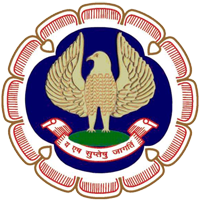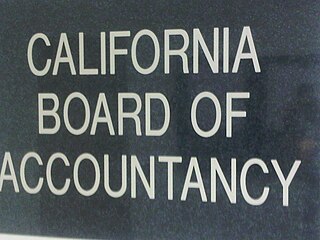The CalCPA Education Foundation provides continuing education and information to CPAs and other professionals. Founded in 1966, the CalCPA Education Foundation is a 501(c)(3) organization and a sister organization of The California Society of Certified Public Accountants (CalCPA).
CPAs are required to pass a Uniform Certified Public Accountant Examination to receive certification. To maintain that license, CPAs must undergo 80 hours biennially of continued professional education (CPE). The CalCPA Education Foundation's revenue comes from providing CPAs CPE via conferences, courses, webcasts, on demand, onsite training and more.
In 1965, Arthur Sargent, former CalCPA executive director, suggested the formation of a foundation under which the professional development program could flourish. In addition to ensuring that all the funds raised from educational programs would be reinvested into additional educational programs, a foundation could pursue research into accounting and tax matters, and study the accounting educational programs of California universities and colleges. An ad hoc committee, chaired by Tindall Cashion, was appointed to investigate the feasibility of establishing a separate foundation. In June 1965, the CalCPA board of directors approved formation of a separate nonprofit corporation that would be a subsidiary corporation under CalCPA’s control. In March 1966, the board approved the articles of incorporation and the bylaws of the new nonprofit corporation, and the California CPA Foundation for Education and Research was born. The name was changed to CalCPA Education Foundation in 1994.
The CalCPA Education Foundation offers training and continuing professional education programs.
Professional certification, trade certification, or professional designation, often called simply certification or qualification, is a designation earned by a person to assure qualification to perform a job or task. Not all certifications that use post-nominal letters are an acknowledgement of educational achievement, or an agency appointed to safeguard the public interest.

Certified Public Accountant (CPA) is the title of qualified accountants in numerous countries in the English-speaking world. It is generally equivalent to the title of chartered accountant in other English-speaking countries. In the United States, the CPA is a license to provide accounting services to the public. It is awarded by each of the 50 states for practice in that state. Additionally, all states except Hawaii have passed mobility laws to allow CPAs from other states to practice in their state. State licensing requirements vary, but the minimum standard requirements include passing the Uniform Certified Public Accountant Examination, 150 semester units of college education, and one year of accounting-related experience.

Certified Management Accountant (CMA) is a professional certification credential in the management accounting and financial management fields. The certification signifies that the person possesses knowledge in the areas of financial planning, analysis, control, decision support, and professional ethics. There are many professional bodies globally that have management accounting professional qualifications. The main bodies that offer the CMA certification are:

Certified General Accountant (CGA) is a professional designation granted to Canadian accountants. A person who meets the education, experience and examination requirements of the Certified General Accountants of Canada (CGA-Canada) is entitled to use the professional designation and add the letters "CGA" to their title. A CGA is jointly a member of CGA-Canada and a provincial or territorial CGA association, or a CGA association overseas.
The Chinese Institute of Certified Public Accountants or CICPA is a professional accounting organization based in Beijing with oversight responsibility for accountants in China.

The Institute of Chartered Accountants of India (ICAI) is India's largest professional accounting body under the administrative control of Ministry of Corporate Affairs, Government of India. It was established on 1 July 1949 as a statutory body under the Chartered Accountants Act, 1949 enacted by the Parliament for promotion, development and regulation of the profession of Chartered Accountancy in India.
The Society of Management Accountants of Canada, also known as Certified Management Accountants of Canada and CMA Canada, awards the Certified Management Accountant designation in Canada.

The Maryland Association of Certified Public Accountants is a statewide professional association that provides leadership, training, advocacy and resources for its nearly 10,000 certified public accountant-members, who are employed in private practice, industry, government, and education.
The Indiana CPA Society (INCPAS) is a statewide association representing current or aspiring certified public accountants (CPAs) and related professionals in Indiana. INCPAS was founded in 1915 with nine charter members and has since grown to nearly 7,000 members.
A Certified Government Financial Manager (CGFM) is a professional certification issued by the Association of Government Accountants (AGA) in the United States. It was created in 1994 to provide a professional standard of financial expertise and ethics in government and a standard by which government financial management professionals are measured. Its education, experience and ethics requirements have served to elevate the most seasoned financial professionals.
The Florida Institute of Certified Public Accountants (FICPA) is a professional membership organization headquartered in Orlando. The FICPA represents approximately 18,500 CPAs and accounting professionals in Florida and beyond. Shelly Weir is the FICPA's president Julian Dozier, CPA, is the institute's 2022–2023 Board Chair.
The California Society of Certified Public Accountants (CalCPA) is the largest statewide professional association of certified public accountants in the United States with more than 42,000 members.
Forensic accountants are experienced auditors, accountants, and investigators of legal and financial documents that are hired to look into possible suspicions of fraudulent activity within a company; or are hired by a company who may just want to prevent fraudulent activities from occurring. They also provide services in areas such as accounting, antitrust, damages, analysis, valuation, and general consulting. Forensic accountants have also been used in divorces, bankruptcy, insurance claims, personal injury claims, fraudulent claims, construction, royalty audits, and tracking terrorism by investigating financial records. Many forensic accountants work closely with law enforcement personnel and lawyers during investigations and often appear as expert witnesses during trials.

The National Association of Black Accountants, is an American nonprofit professional association that represents the interests of more than 200,000 black professionals in furthering their educational and professional goals in accounting, finance, and related business professions. Student members are served throughout the organization's 50 chapters around the country.

The California Board of Accountancy (CBA), created by statute in 1901, is a semi-autonomous State of California agency under the California Department of Consumer Affairs whose purpose is to protect consumers by ensuring only qualified licensees practice public accountancy in accordance with established professional standards in California.
The National Society of Public Accountants (NSPA), later shortened to National Society of Accountants (NSA), is a professional association for tax and accounting professionals; NSA and its state affiliates represent more than 30,000 independent practitioners who provide accounting, tax, auditing, financial and estate planning, and management services to 19 million individuals and businesses. NSA's mission is to provide national leadership in the profession of accountancy and taxation through the advocacy of practice rights, and by the establishment and promotion of high standards in ethics, education, and professional excellence.

Chartered Professional Accountant is the professional designation which united the three Canadian accounting designations that previously existed:
Becker Professional Education is a company that offers educational resources for professionals in the areas of accounting, finance, and project management.

Chartered Professional Accountants of Canada is the national organization representing the Canadian accounting profession through the unification of the three largest accounting organizations: the Canadian Institute of Chartered Accountants (CICA), the Society of Management Accountants of Canada and Certified General Accountants of Canada (CGA-Canada), as well as the 40 national and provincial accounting bodies. It is one of the largest organizations of its type in the world, with over 217,000 Chartered Professional Accountants in Canada and around the world.
The Florida Board of Accountancy (FLBOA) regulates Certified Public Accountants and Certified Public Accounting Firms for the State of Florida. The FLBOA is created in Florida Statutes Chapter 473 and is administered by the Florida Department of Business and Professional Regulation (DBPR). Florida Statutes Chapter 473 permits the FLBOA to establish rules that are codified in the Florida Administrative Code (FAC) in sections 61H1-19 through 61H1-39.